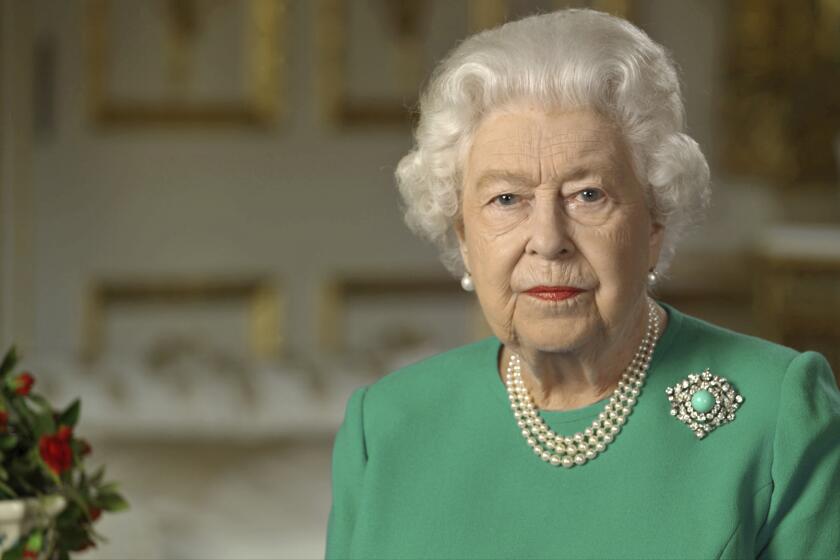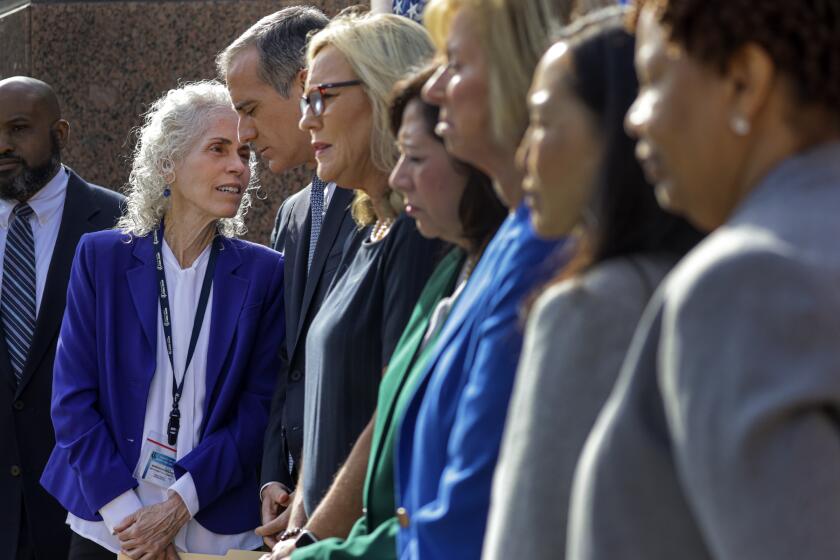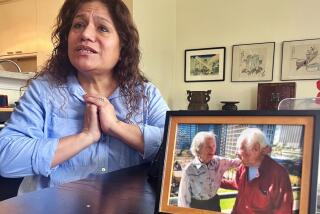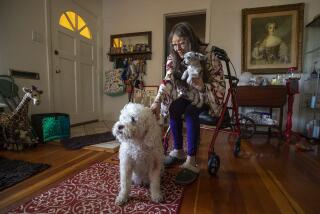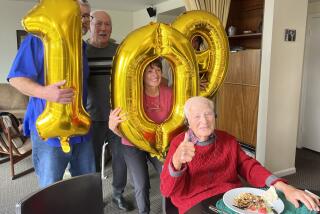Column: These three Angelenos, ages 106, 101 and almost 90, haven’t let coronavirus dim their spirits
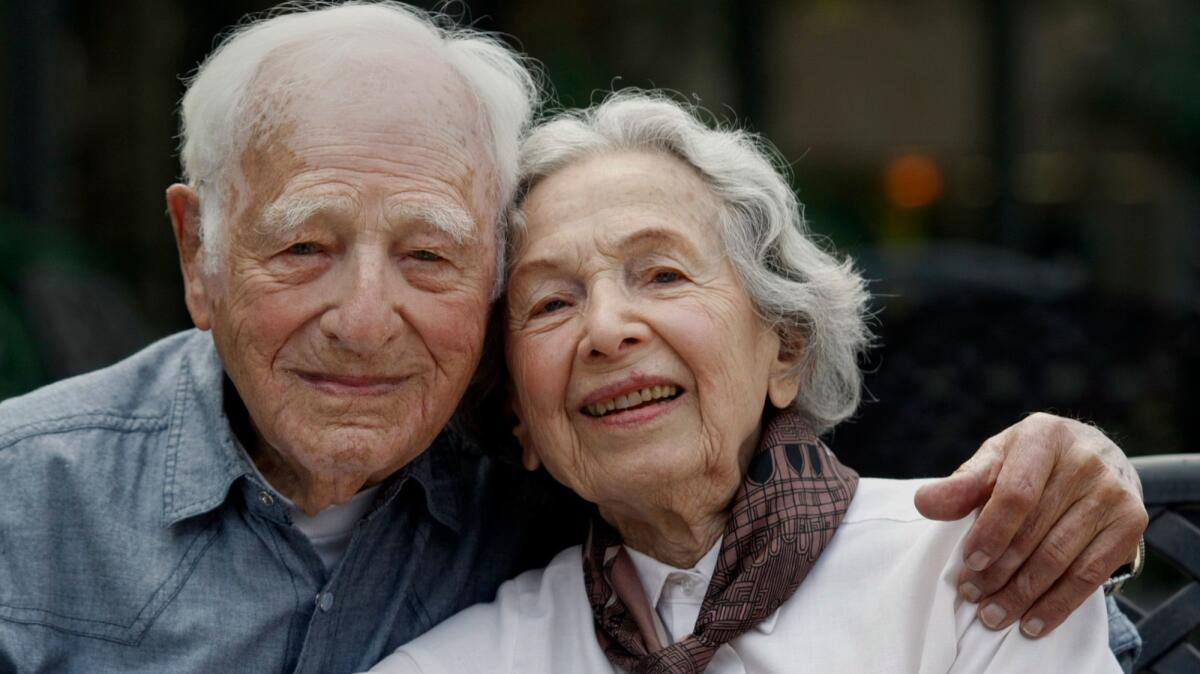
- Share via
I keep hearing from readers looking for a break. Come on, they say, give us some sunshine, something that breaks through the storm of depressing coronavirus news.
As you wish.
My circle of people I’ve met through this column includes a 101-year-old former nurse and amateur painter, a retired appliance repairman who turned 106 not long ago, and a jazz drummer and band leader who’s closing in on 90 and still always looking for a gig.
As we all know by now, older people have been hit particularly hard by coronavirus, so I figured I should check in on the trio to see how they’re faring. All three are healthy, relatively speaking, and more importantly, they’re in good spirits.
In this historic moment, the free world is led by a man whose greatest talent is to divide, mock, insult, alienate.
If you’re looking for a constructive way to spend all the idle hours during the stay-home lock-down, Marian Sachs, a year past a century, has a routine you might consider
She reads, and reads, and reads. She always has, but now there’s more time than ever with outings and social gatherings curtailed.
Sachs told me she is on her 31st book since Jan. 1 — Malcolm Gladwell’s “Outliers.”
“It’s a fascinating book, and so well written even though the material is dry,” said Sachs, who lives in an assisted living home in Pasadena.
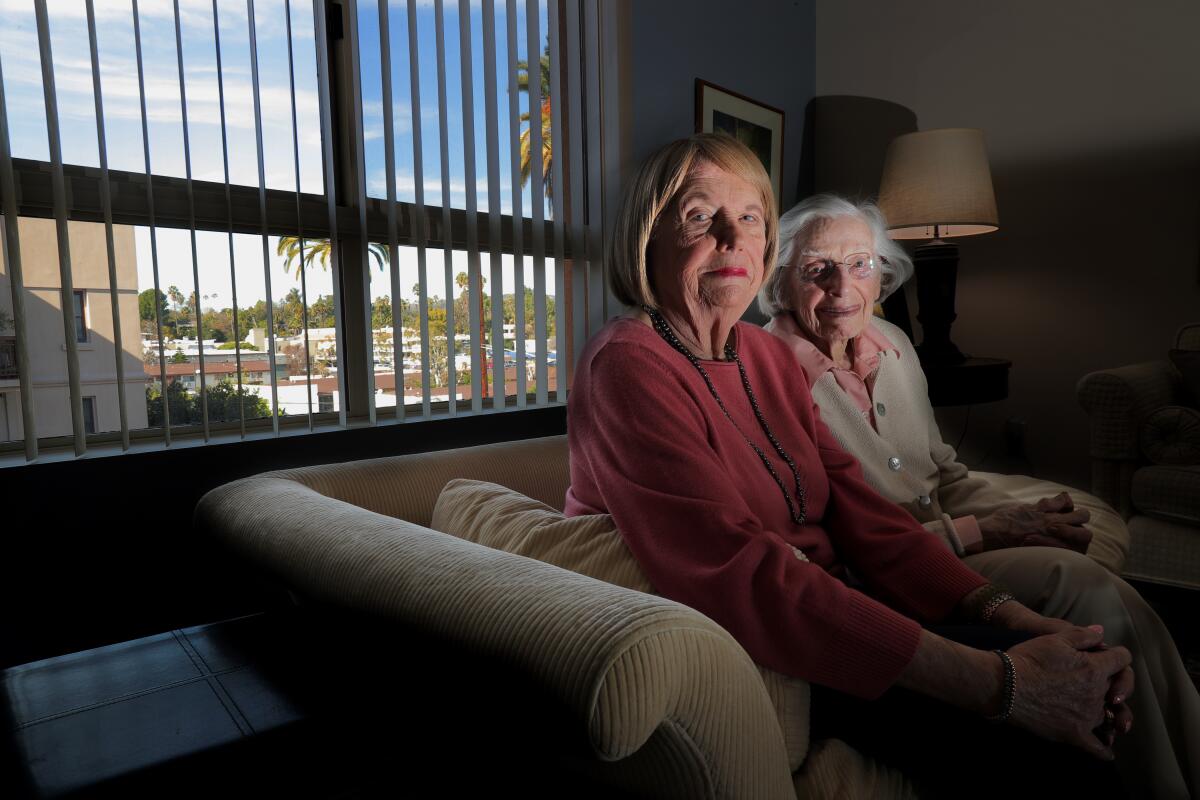
Two months ago, I wrote about Sachs and her buddy Marion Marx, who were inspired by teenage global warming activist Greta Thunberg. Marian and Marion successfully rallied fellow residents to start eating meatless meals to help save rain forests. At the time I told Sachs I was reading “The Splendid and the Vile,” the Winston Churchill tome by Erik Larson.
“Oh, that sounds interesting,” Sachs said, and she immediately ordered it on her Kindle.
I’m still digging through the 600-page book. Not Sachs.
“I finally finished reading ‘The Splendid and the Vile,’” she emailed me weeks ago. “But it took me four days. Good reading. Thank you.”
Sachs keeps a log, uses a pencil, and writes in good old-fashioned longhand cursive to enter the title of every book she completes. A recent favorite was “The Japanese Lover,” by Isabel Allende. She reads serious books and fun books and loves mysteries by Jonathan Kellerman, James Patterson and, one of her favorites, Michael Connelly, having just burned through “Dark Sacred Knight” and “The Nightly Fire.”
When does she read?
Well, first things first, Marion Marx comes over for an early workout, because their regular exercise class is on hold during the pandemic.
“My table is five feet long and we each push our chairs back another foot, so we have at least six feet between us and follow the distancing rules,” Sachs said.
After 30 minutes of flexing and stretching, she reaches for a book.
“I read until lunch, and then after my nap in the afternoon I read until dinner, and if the book is intriguing I’ll read after dinner until I go to bed,” she said, estimating an average of five or six hours of reading daily.
Speaking of books, it’s been three years since Morie Markoff published his first book. He was 103 at the time.
No need to re-read. He published at 103, three years after his first-ever art exhibit, which featured sculpture he fashioned from loose parts at his appliance repair center.
The title of Markoff’s book was “Keep Breathing,” because people kept asking him the secret of a long life.
“I started writing a second book, but I thought it was a duplication of earlier stuff I wrote, so I stopped,” Markoff said Tuesday by phone from his downtown L.A. apartment. “As a writer, I have to tell you, you have to be careful about duplication.”
Now he tells me.
Markoff is in a tiny and ever-shrinking group of people who were alive during the Spanish flu, which killed 50 million people in the world, including Markoff’s older brother.
“We were living in the New York tenements, and my brother was 11,” said Markoff.
I met Markoff when he was in his late 90s and sent me an email offering to buy me a cup of coffee. I had a great time with him and his wife Betty. Last fall, he lost Betty. She was 103.
“I miss her dearly,” he said.
Markoff had a close call with coronavirus, when several employees and residents at the Silver Lake retirement home where he was living tested positive for the virus. He moved into a downtown apartment with his caretaker, Danny Ching. Markoff said the two are 10 days into a 14-day self-quarantine, but both are symptom-free.
“Right now the world is one big mess,” Markoff said, promising we can get together when the threat subsides. “I think we’re going to survive it.”
Dr. Barbara Ferrer announces coronavirus stats, warns us to keep our distance and dispenses compassion to a worried county.
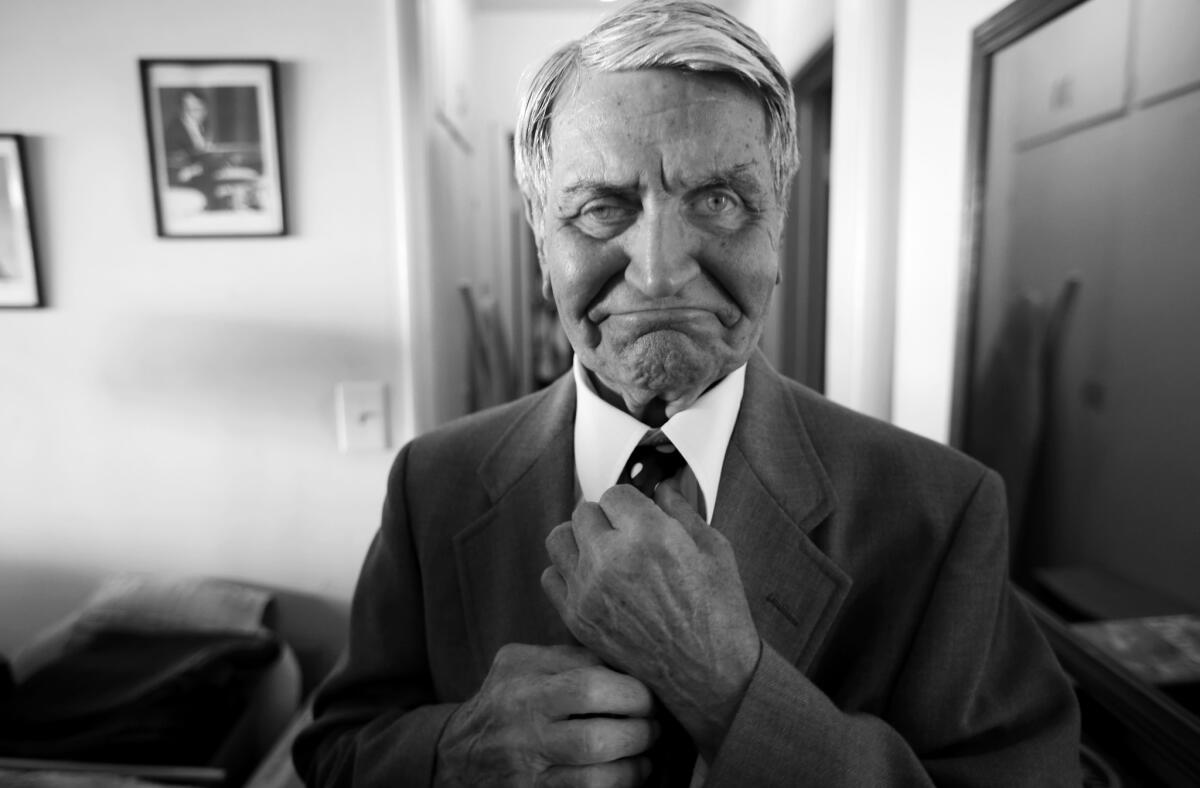
That same kind of grace and optimism flow from Steve Hideg every time I talk to him, no matter what his troubles might be. He’s the musician who survived bombing raids in his native Hungary during World War II, has struggled with a couple of recent health challenges unrelated to the virus, and has been barely hanging on to the Los Feliz apartment he’s lived in for a quarter of a century.
With Hideg’s limited income and mobility I was worried about whether he’s getting enough food, so I gave him a call and asked if he still gets regular deliveries from Meals on Wheels.
“It’s once a week now because they’re so swamped with other people, and it’s not a hot meal,” said Hideg. “It’s four frozen meals.’
That wasn’t a complaint. It was a blessing — a “thank heavens” for the good folks at Meals on Wheels.
Before the shutdown, Hideg’s last concerts were volunteer charity gigs with a small band at Children’s Hospital.
“It’s so satisfying to do it for children who are fighting for their lives when they’re in the lobby, waiting to see a doctor,” said Hideg, a long-ago child of war who once described financial hardship as “a beautiful struggle” because he still had the gift of music.
Hideg said a caretaker checks in on him regularly, and in yet another example that the pandemic is bringing out the best in some people, he told me the Los Feliz Neighborhood Council has checked in on him.
“You know me,” said Hideg. “I’m a survivor. I believe we’re going to get through this.”
Over the past week, while checking in on Sachs, Markoff and Hideg, I’ve been in email contact with Connelly, the former L.A. Times police reporter and mega-best-selling novelist and executive producer of the hit TV series “Bosch,” spawned by his Harry Bosch detective novels.
When I told Connelly the 101-year-old Sachs is a big fan, he said he would drop a pre-publication copy of his next book, “Fair Warning,” in the mail to her.
Sachs squealed with delight when I told her that, and when I mentioned my upcoming visit with Markoff and asked if she’d like to join me when the coast is clear, she said absolutely.
There will be plenty to celebrate, no doubt. I should probably hire a band.
Steve Hideg said he’s in.
Cloud lifted.
More to Read
Sign up for Essential California
The most important California stories and recommendations in your inbox every morning.
You may occasionally receive promotional content from the Los Angeles Times.

